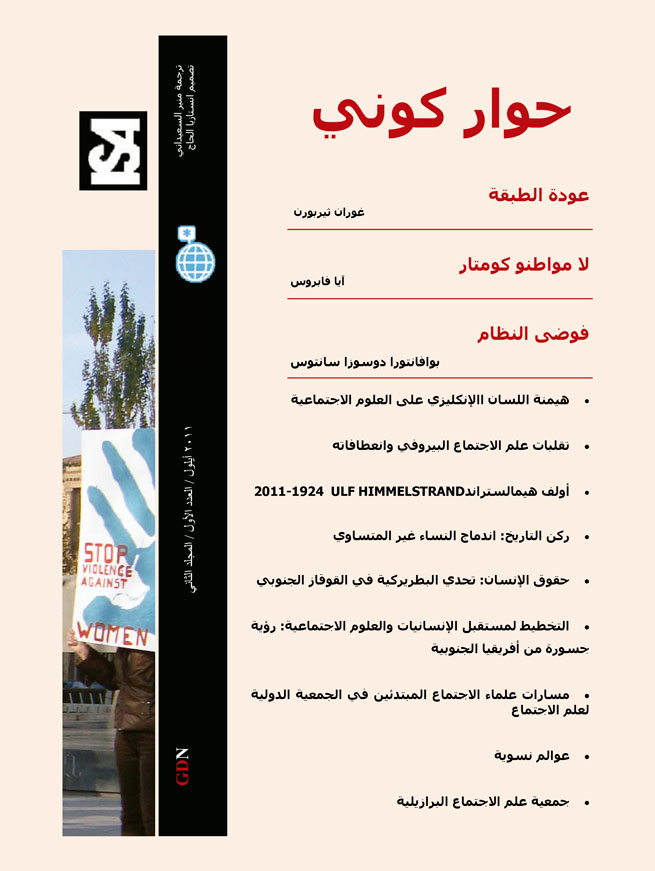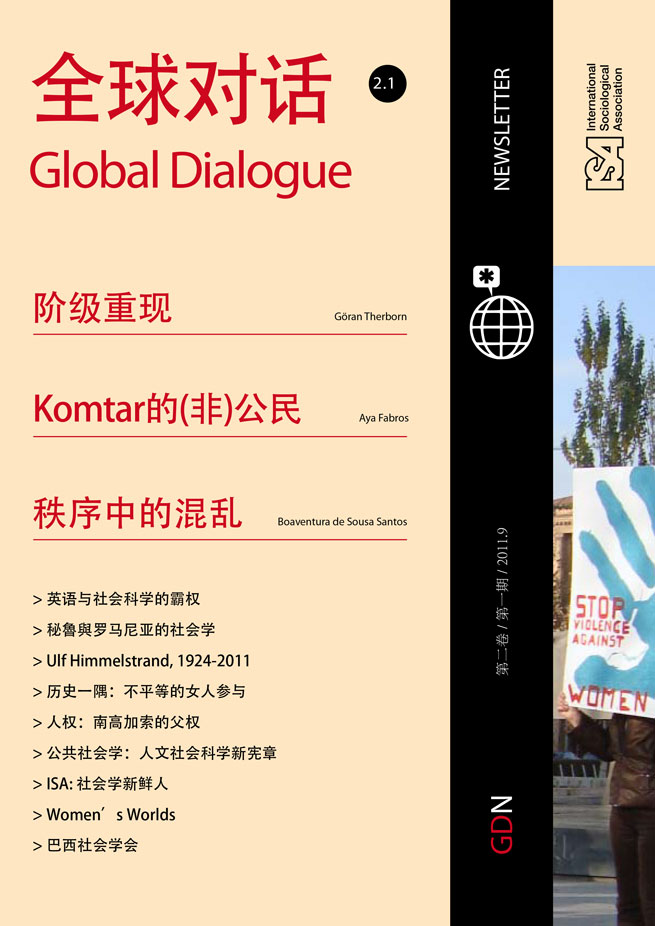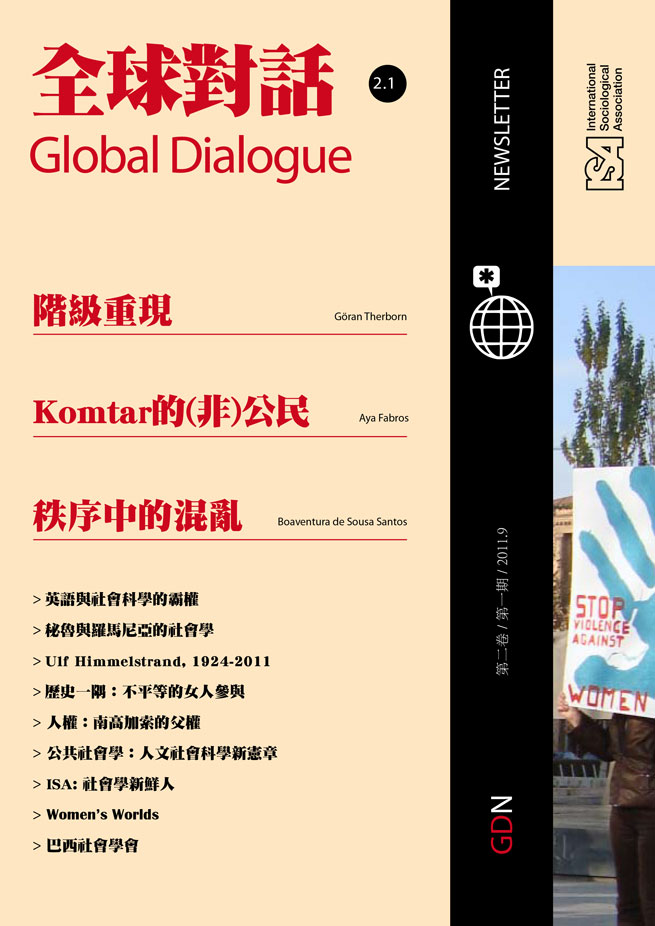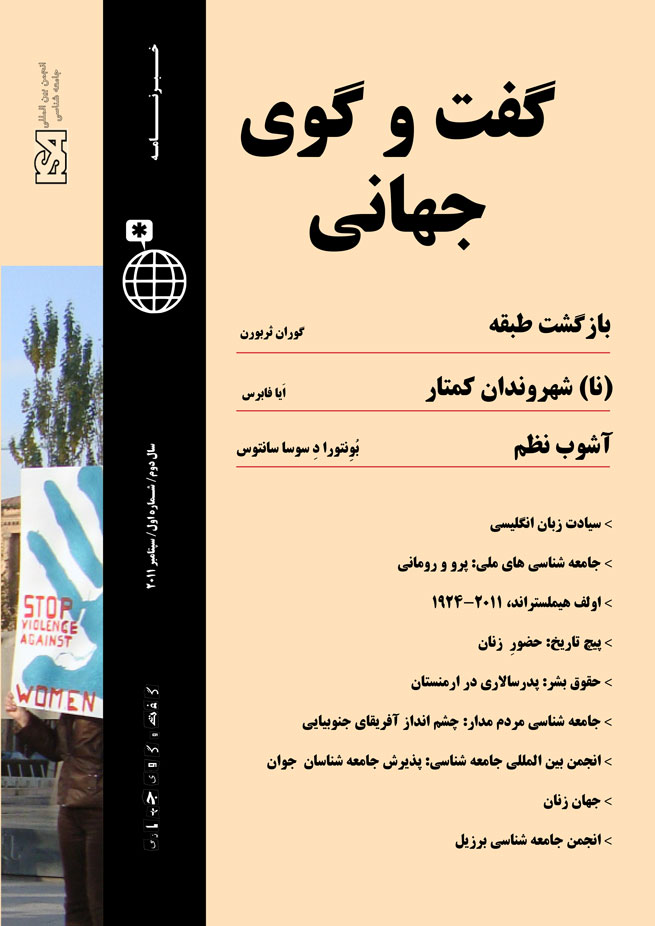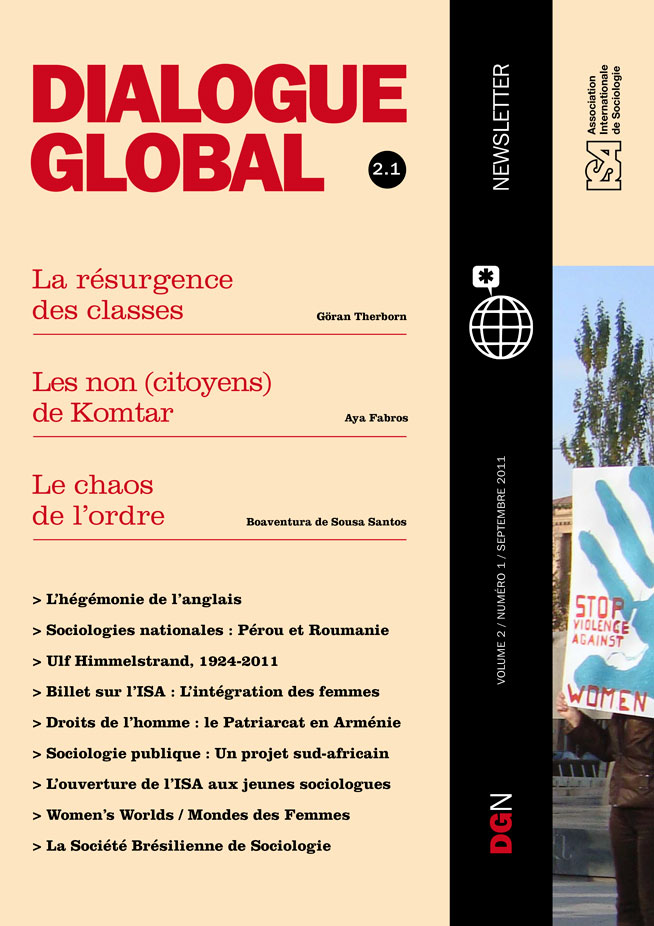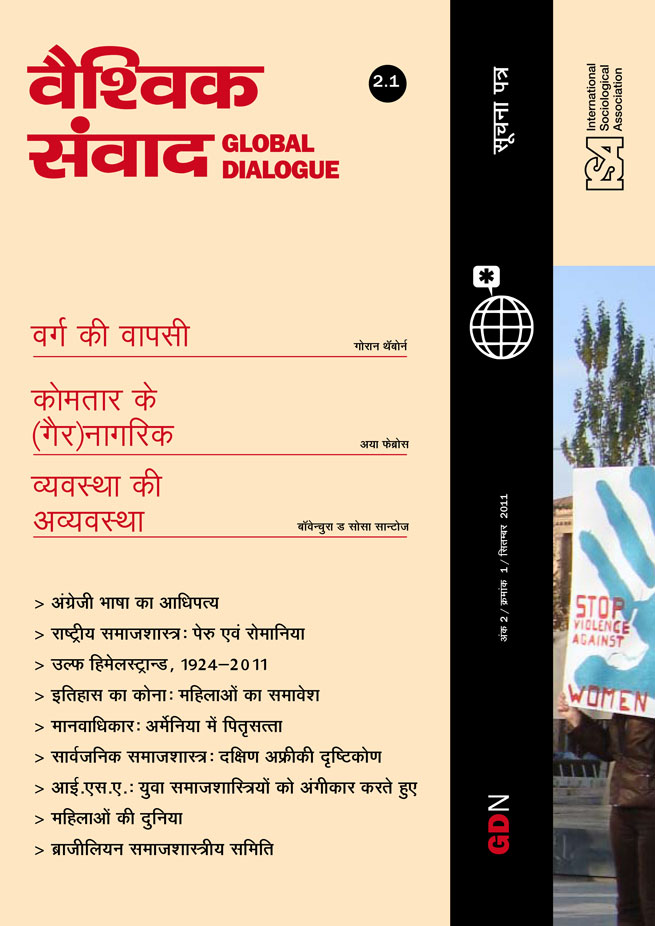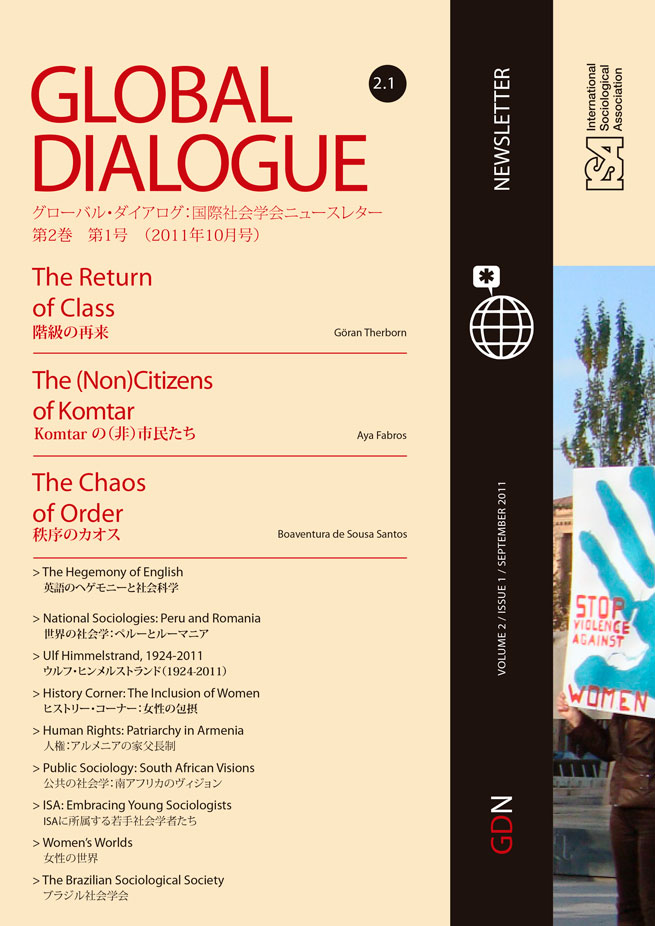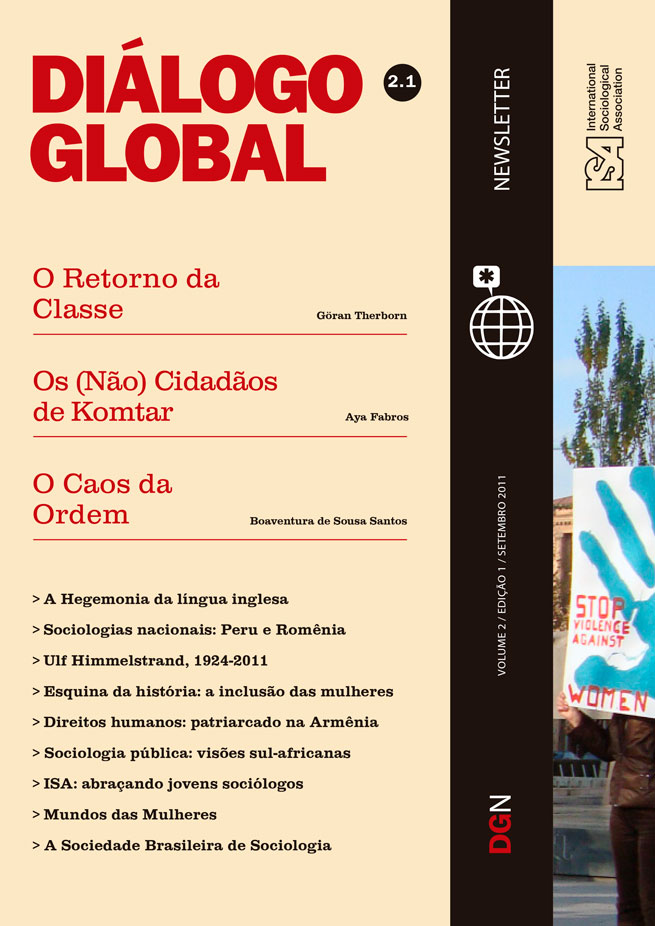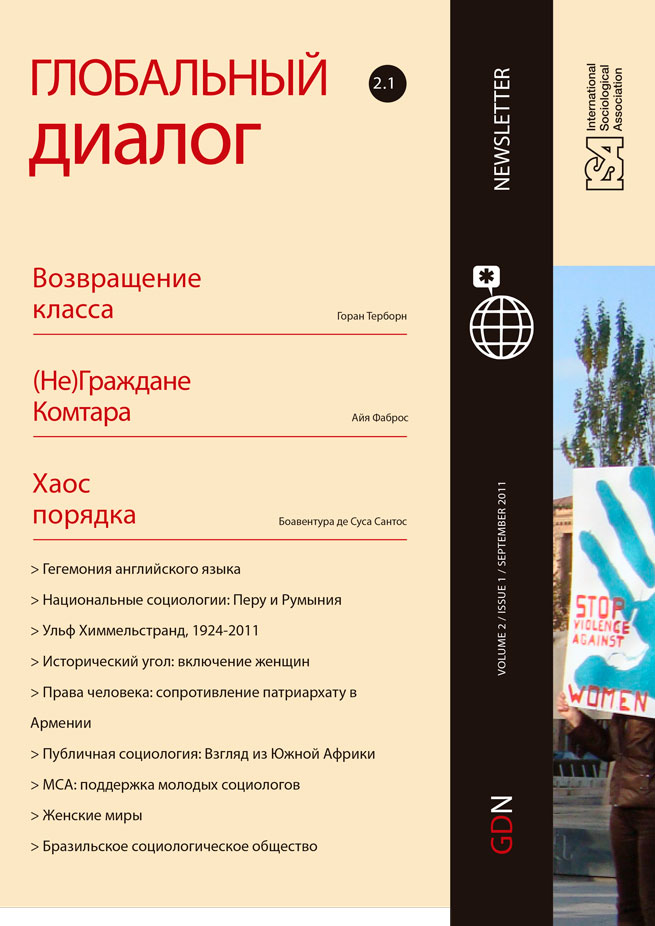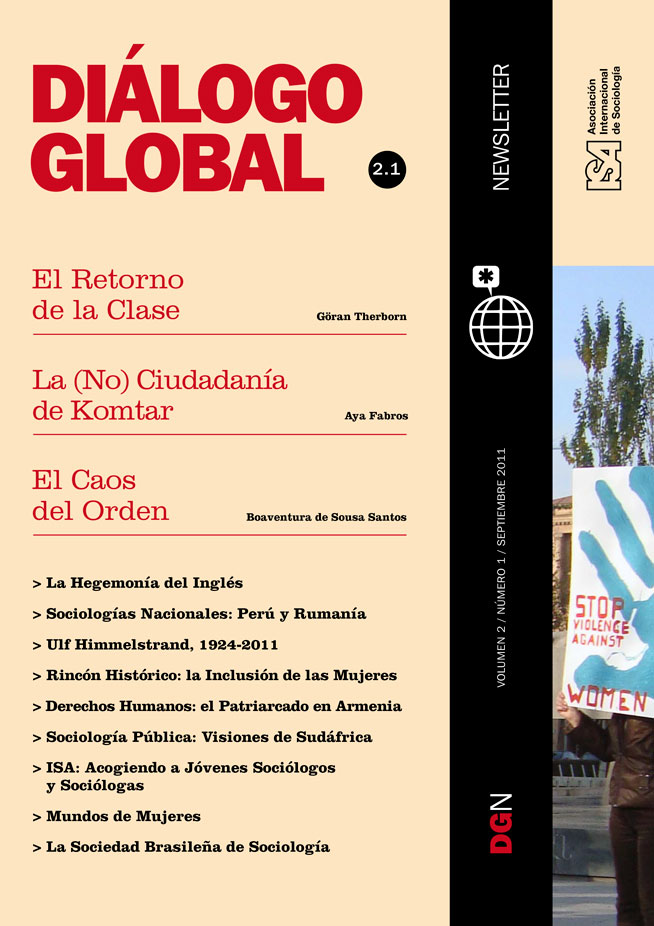Read more about Reports and Conferences
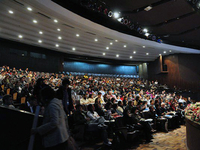
Brazilian Sociology Goes from Strength to Strength
by Elisa P. Reis
Women’s Worlds
by Ann Denis
September 30, 2011
Right after the XVII ISA World Congress of Sociology (2010) in Gothenburg, then newly elected Michael Burawoy constituted a subcommittee to know more about the status of early career sociologists in the ISA. The following is a summary of the results of a survey of ISA’s student members as well as of the report of the subcommittee presented at the Executive Committee meeting in Mexico City (March 23-25, 2011).
Data Sources: The subcommittee’s report is based on the following sources: 1) Electronic survey of the student ISA members (about 30 percent response rate conducted by the ISA Secretariat; 2) list of PhD Laboratory winners from 2000-2009 and their subsequent membership status; 3) testimonies of previous PhD Lab members, both members and non-members of the Junior Sociology Network (JSN); 4) JSN e-group; 5) PhD Lab organizers; 6) communication from JSN leaders to ISA Presidents Michel Wieviorka and Michael Burawoy. The electronic survey covered basic socio-demographic variables (age, gender, year finished PhD, email and postal address, country of graduate studies, year of completing undergraduate studies, and employment status).
Who are the early career sociologists in ISA? Of the 5,053 ISA members, 830 or 16% are early career sociologists[1]. They are ISA members who paid student membership fees and are mostly pursuing their MA or PhD degrees or have recently completed their studies. They are classified in the student category for a maximum of 4 years after obtaining their last degree. In terms of the economic classification of their countries of origin, the pattern of distribution follows the pattern of the ISA general membership: 507 come from A countries, 245 from B countries and 78 from C countries.
Of the 253 members who responded to the survey, 138 were females (56%) and 115 males (45%). The majority (80%) were PhD students while the rest had recently completed their PhD (14%) and MA (4%) degrees. Only one respondent was studying for a BA degree in sociology. Most of the postgraduate students were pursuing degrees in their home countries. Most of the PhD students (54%) and those who have completed their PhD (78%) reported holding stable job positions as compared to only half of the holders of MA degrees.
A potential base for recruitment for ISA membership are previous participants in the ISA PhD Laboratory (130) or winners and finalists of the World Competition for Junior Sociologist (about 45). But of the 130 participants in the PhD Laboratories (2000-2009), only one half (64) ever joined ISA and only 34 had retained their membership as of November 2010.
At the XVI World Congress (Durban, 2006), participants of the ISA Junior Sociology Workshop organized themselves into the Junior Sociology Network (JSN). Since then, they have been active in promoting activities for their members such as organizing special sessions for junior sociologists in the 2008 Barcelona Forum and the 2010 World Congress of Sociology in Gothenburg. But, like others, they face challenges in organizing sessions and raising resources to participate in these global events. They would, therefore, like their activities to receive more support and better integration into ISA global events.
Based on the electronic survey and interviews with members of the JSN, the subcommittee recommended the ISA take the following actions:
This piece is partly based on the “Early Career Sociologists Subcommittee Report” presented by the chair of the subcommittee (Emma Porio) on March 24, 2011 to the ISA Executive Committee meeting in Mexico City. Special thanks to the ISA Secretariat, Izabela Barlinska and staff, for conducting the electronic survey; and to the other members of the subcommittee, Michelle Hsieh, Jan Fritz and Yoshimichi Sato for their written inputs.
[1] We use the name ‘early career sociologists’ because some sociologists, who are in the early stages of their career and really need support, cannot be considered young or junior.
Emma Porio, Ateneo de Manila University, Philippines, and Member of ISA Executive Committee 2006-2014
This issue is not available yet in this language.
Request to be notified when the issue is available in your language.
If you prefer, you can access previous issues available in your language:
